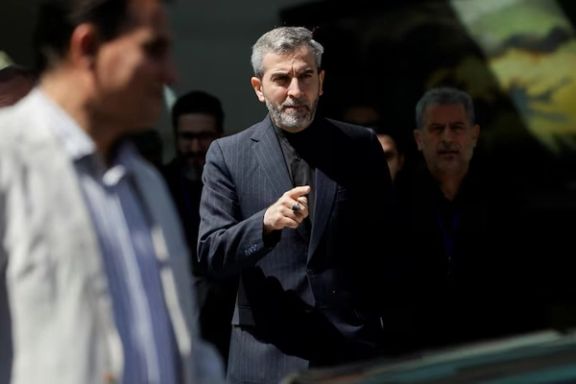Power Shift in Tehran as VP Mokhber Takes Helm After Raisi’s Death

In the wake of the helicopter crash that killed President Ebrahim Raisi, Iran’s Supreme Leader appointed Vice President Mohammad Mokhber as acting president.

In the wake of the helicopter crash that killed President Ebrahim Raisi, Iran’s Supreme Leader appointed Vice President Mohammad Mokhber as acting president.
“Mr. Mokhber will manage the executive power in line with Article 131 of the Constitution and will coordinate with the heads of legislative and judicial branches to elect a new president within fifty days,” stated Ali Khamenei in a message of condolence. The swift transition underlines the regime's intent to maintain a firm grip on power amidst potential instability.
At 68, Mokhber, who has historically maintained a low profile, is stepping into the limelight under controversial circumstances. His tenure as the head of the Execution of Imam Khomeini's Order (EIKO), and former chairman of the board at Sina Bank, has been marked by ambitions overshadowed by inefficiency and opacity, particularly noted during Iran's struggle to produce a COVID-19 vaccine. Promises of widespread vaccine availability were unfulfilled, raising questions about the allocation of resources and government accountability.
EIKO is an extensive tax-exempt, "charitable" business conglomerate controlled by Khamenei's office, which has its tentacles on a range of sectors in Iran's economy.
Despite the controversies, Mokhber's academic credentials include a doctorate in international law and he has been a member of Iran’s Expediency Council since 2022. His past inclusion and subsequent removal from the European Union's sanctions list for alleged involvement in nuclear or ballistic missile activities adds a layer of international scrutiny to his new role as acting president.
Amidst the leadership upheaval, Ali Bahadori Jahromi, the government spokesman, revealed another significant appointment. Ali Bagheri Kani, previously a political deputy at the Ministry of Foreign Affairs and a former Deputy Secretary of Iran's Supreme National Security Council, has been named head of the government's Foreign Relations Committee.

Kani, known for his role in the September 2023 prisoner release deal with the United States, represents a continuity of Iran's hardline stance in its international negotiations.
The death of former foreign minister Hossein Amir-Abdollahian was an opportunity for Mr. Khamenei to appoint a more seasoned and "moderate" figure to try to find some common ground with the United States over its controversial nuclear program and regional issues.
As Iran observes five days of national mourning declared by Khamenei, the recent events not only cast a shadow over Iran's internal governance but also signal potential shifts in its foreign policy approach under new leadership fraught with challenges and skepticism.